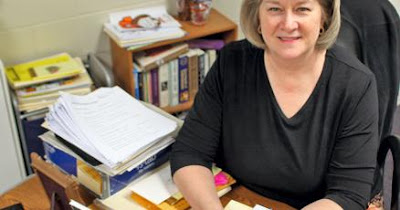I believe in the power of failure as the world’s greatest teacher. Not enough young people experience true failure, failure of their own making, failure from their own shortcomings. Young folks don’t experience healthy failure any more simply because of the protection deliberately afforded them by adults: parents and educators.

While well-meaning, parents bend over backward to protect their kids from perceived and real failure. The score isn’t kept at little kids soccer or t-ball games. Everyone gets a participation trophy at the end of every pee-wee sports season. Parents work too hard on their children’s homework and make excuses for why students aren’t measuring up, “Oh, that’s my fault; I didn’t get him up early enough.” “I’m sorry, I didn’t remind her to do her homework,” when what they should be doing is telling Junior that when he or she is late to school or with an assignment, there are natural consequences. It’s simple logic. If Junior has to stay after school or his grade drops, perhaps he will make sure he’s up on time or getting her assignment in. It’s not mean; it’s just real.
We in education are no better. We bend over backward getting students to just “pass” classes. We work so hard and offer so much assistance and multiple chances so that they can earn that D- when what we should be doing is letting them fail. That’s right. Flunk the class. What’s a slew of D-’s going to do for a student anyway? It’s far better to fail at this stage of the game than to delay the learning that comes with failure until later when the stakes are much higher. The military doesn’t give endless chances to get it right. Colleges don’t. Certainly, employers and industries don’t either. And neither do most relationships.
When students experience failure at a younger age, in a natural way, they learn how to bounce back. That’s resilience. They figure out how to get up and move forward. They recognize their weaknesses and strengths and can operate accordingly in the future. This is a powerful intrinsic learning experience. When these students learn to accept failures and how to turn them around, they are teaching themselves the grit they will need later on in their lives.
Standing between young people and defeat delays genuine failure to times when the consequences are too great. We need to let kids stumble and fall when there is a healthy safety net, when they’re practicing in an environment surrounded by support systems of important adults in their lives (parents, teachers, family members, church leaders, coaches, sponsors) who teach them how to address failure, not find ways to prevent or excuse it. If they never have that practice, what happens when they fail outside of all that prevention that was cloaked as protection? The stakes are too high then and they may not be able to hold a job, persevere in difficult classes or training programs, function independently outside of the orb of their parents’ influence. We need to destigmatize failure. We don’t need to downplay the importance of success or diminish the consequences of failure, but we need to reframe the experience and let young people own it.
While embarrassing, failure is not shameful. It’s a natural part of developing as a person with grit and resilience. I still fail at things all the time. You’ll find my lesson plans littered with post-lesson comments like “Nope” and “Didn’t work,” even “Disastrous.” I use these failures to drive me forward and to craft better lessons. When I fail miserably with a parent--lose my cool, take something personally--I may be embarrassed, but I’m not ashamed and I know I’m human and will do better the next time I’m faced with a similar situation.
The bottom line is that when we, as adults, stand between young people and failure, we are doing them a great disservice, and we hurting them. It’s time that adult stop preventing kids from failing, but rather help them navigate through their failures instead.






